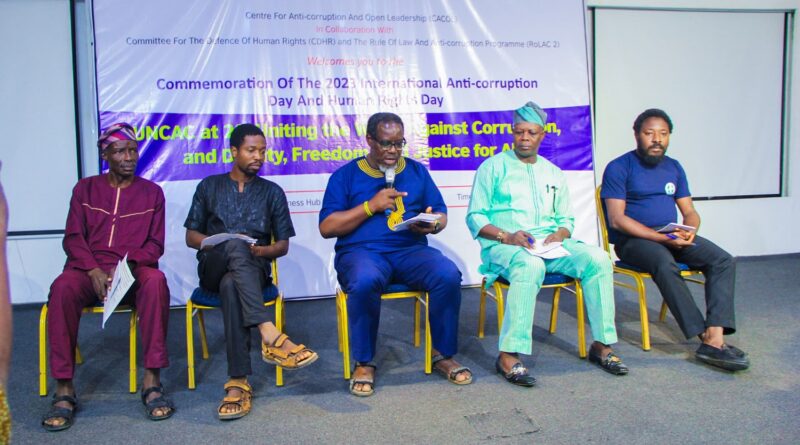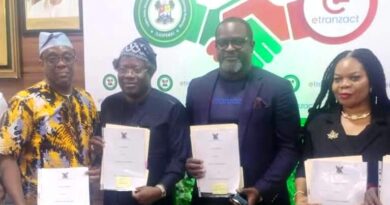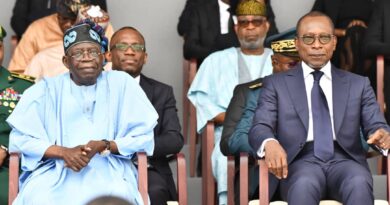CACOL, CDHR, IIDEA Commemorate 2023 International Anti-Corruption And Human Rights Day
The Centre for Anti-Corruption and Open Leadership, CACOL in collaboration with Committee for the Defence of Human Rights, CDHR, and International Institute for Democracy and Electoral Assistance, IIDEA recently organized an “Affirmative Action Forum” to mark this year’s International Anti-Corruption and Human Rights Day at The Zone Event Centre, Gbagada – Oworonshoki Expressway, Lagos.
In a release issued by CACOL’s Director (Administration and Programmes), on behalf of the Chairman of the Centre, Debo Adeniran, he stated, “the event was organized to bring to the fore the interconnectedness between corruption and human rights abuse both of which are rampant in the country.
Seasoned, erudite social crusaders, human rights advocates and anti-corruption activists discussed the thematic focus of the Commemoration, “UNCAC at 20: Uniting the World against Corruption, Enhancing Dignity, Freedom, and Justice for All” .
The Session commenced with an opening remark by the Chairman, Centre for Anti-Corruption and Open Leadership, CACOL, and President, Committee for the Defence of Human Rights, CDHR, Comrade Debo Adeniran, who reviewed the importance of the United Nations Convention on the Universal Declaration of Human Rights and the UN Convention Against Corruption, UNCAC 2003 commemorated annually on 10th and 9th December respectively.
Mrs. Ajibola Ijimakinwa, Lagos State Project Coordinator of Rule of Law and Anti-Corruption Programme, (RoLAC) in her goodwill message highlighted the imperatives for strengthening institutions to entrench openness, transparency and accountability in governance.
The two lead-off speakers emphasized the importance of the Conventions at promoting human dignity, equity and social justice, combating social ills like gender based violence, expanding access to justice, enhancing citizens’ affirmative engagements in the budgetary processes through needs assessments, inputs from the communities up to civic monitoring of government’s activities.
The Panel discussion focused on detailed examination of corruption and human rights abuses in the country as well as civic oversight of State Funded projects.
It dissected the governance problematic issues of trust deficits and confidence building between the citizens, State and Non – State parties.
The Panelists, – Gideon Adeyeni of Corporate Accountability and Public Participation Africa (CAPPA), Kehinde Adeoye, Chairman CDHR Lagos, Yinka Folarin, Vice President CDHR, and Mr. Adesegun Ogundeji who represented the Lagos State Commissioner for Information and Strategy, collectively submitted that violation of rights feeds corruption, depletes scarce public funds needed to shore up provisions of basic social welfare necessities for Citizens’ and for sustainable socio-economic development.
MAJOR RESOLUTIONS :-
The Forum after robust pollination of perspectives affirmed, among other positions that;
I. Corruption is largely linked with systemic failures, a social variant of human rights abuse that deprives society of funds for the provision of basic social amenities- education, healthcare, and infrastructure.
ii. Government in the country is increasingly becoming incorrigibly corrupt, thus, the dire necessity for Citizens Vigilance and continuous institutional reforms to tackle corruption and abuse in government.
III. Corruption and Human Rights Abuse have direct correlations in lowering the standard of living, dignity of labour and right to life of citizens.
IV. Good, incorruptible leadership engenders good followership, and invariably good governance.
V. Citizens democratic engagements and unhindered participation through “Open Governance Initiatives” is a paramount ingredient of democratic governance to address trust deficits of citizens.
VI. Denial of citizens’ socio-economic rights is a human rights abuse that accentuates rabid corruption. Weaponisation of poverty is a crime against humanity.
VII. The Session called for the jettisoning of the colonial legacy of public service “Oath of Secrecy” as hindrance to transparency, accountability and integrity in governance. It recommended the “Oath of Integrity and Openness” for the nation’s public service.
VIII. Complete overhaul of the country’s educational curriculum to prioritize stigmatization of corruption, Rights abuses, harness creative energy of the youth into productive social transformation.
IX. Effective deployment of the Media and Civil Society Organisations as essential democratic pillars of social crusaders against corruption and rights abuses.




